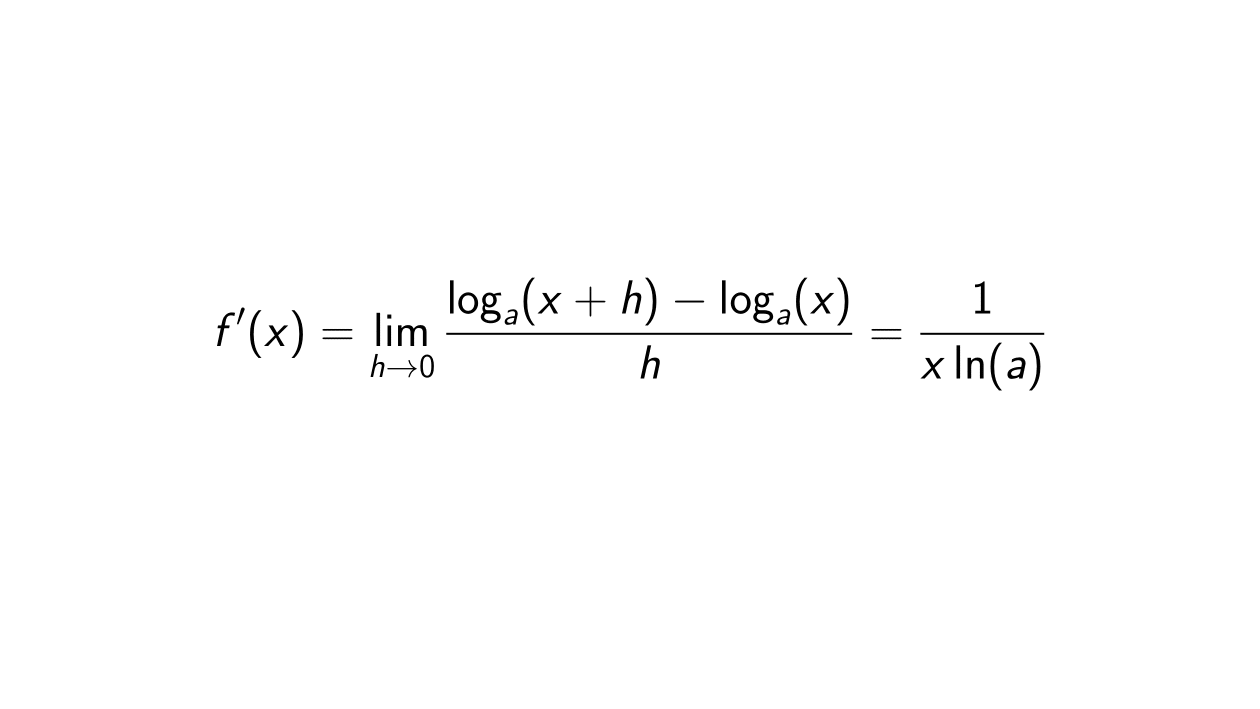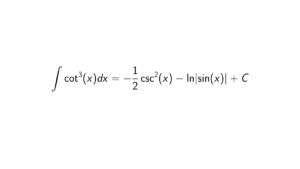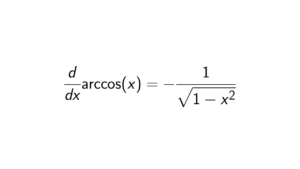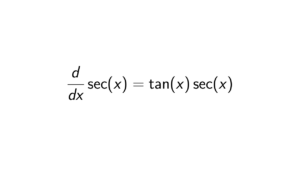Proof. Let f(x) = \log_a(x). Then
\begin{align*}
f'(x) &= \lim_{h \rightarrow 0} \frac{f(x + h) - f(x)}{h} \\
&= \lim_{h \rightarrow 0} \frac{\log_a(x + h) - \log_a(x)}{h} \\
&= \lim_{h \rightarrow 0} \frac{\log_a(\frac{x + h}{x})}{h} \\
&= \lim_{h \rightarrow 0} \frac{\log_a(1 + \frac{h}{x})}{h}
\end{align*}\begin{align*}
\lim_{h \rightarrow 0} \frac{\frac{1}{x}\log_a(1 + \frac{h}{x})}{\frac{1}{x}h} &= \frac{1}{x}\lim_{h \rightarrow 0} \frac{x}{h}\log_a(1 + h/x)
\end{align*}\begin{align*}
\frac{1}{x}\lim_{h \rightarrow 0} \log_a(1 + h/x)^{\frac{x}{h}} = \frac{1}{x} \log_a(\lim_{h \rightarrow 0}(1 + h/x)^{\frac{x}{h}})
\end{align*}\begin{align*}
\frac{1}{x} \log_a(e)
\end{align*}\begin{align*}
\frac{1}{x} \log_a(e) &= \frac{1}{x} \frac{\log_e(e)}{\log_e(a)} \\
&= \frac{1}{x} \frac{1}{\ln(a)} \\
&= \frac{1}{x \ln(a)}
\end{align*}


